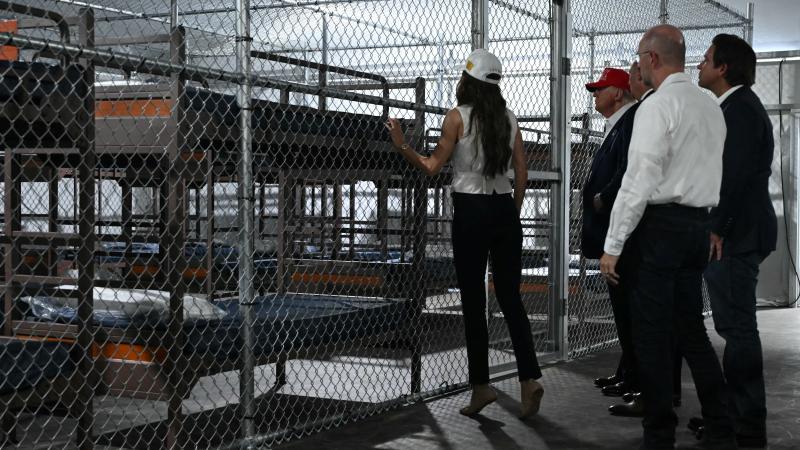Federal appeals court declares California ban on private prisons unconstitutional
"California cannot exert this level of control over the federal government's detention operations," court rules.
State officials are weighing options after the Ninth Circuit Appellate Court ruled California's ban on private, for-profit prisons and immigration detention facilities is unconstitutional, finding that the law would "override the federal government's decision" to utilize private contractors to run immigration detention facilities.
The en banc court declared that Assembly Bill 32 violated the supremacy clause, which "prohibits states from interfering with or controlling the operations of the federal government." The 2019 law barred the state from entering or renewing a contract with a private prison company after January 1, 2020. It will also prevent inmates from being held in for-profit prisons by 2028.
"California cannot exert this level of control over the federal government's detention operations," Judge Jacqueline Nguyen wrote Monday.
According to the court's opinion, Immigration and Customs Enforcement relies "almost exclusively" on privately-operated detention facilities in California to "maintain flexibility" as the state faces "significant fluctuations in the population of noncitizens who are detained." The court found that AB 32 would prevent ICE's contractors from running these facilities, "requiring ICE to entirely transform its approach to detention in the state or else abandon its California facilities."
Three of the 11 judges dissented, writing the ban "does not directly regulate the federal government."
AB 32 was authored by current Attorney General Rob Bonta when he was a lawmaker in 2019. The attorney general's office told The Center Square that they are "disappointed" with the court's ruling and are currently reviewing the decision.
"Assembly Bill 32 was enacted to protect the health and welfare of Californians and recognized the federal government's own documented concerns with for-profit, private prisons and detention facilities," the office said in a statement. "At the California Department of Justice, we'll continue to do our part to stand up for the dignities and rights of everyone in our state."
Bonta's office did not say whether or not they would appeal the decision to the Supreme Court.
The federal government and the GEO Group, a Florida-based company that operates private prisons, sued to block the law in December 2019. A federal judge upheld the private prison ban, but a three-judge Ninth Circuit panel overruled that decision and blocked the law, as reported by Courthouse News. The state then requested a rehearing before all 11 judges on the Ninth Circuit Court.
A handful of other states have moved forward with legislation to ban private prisons and immigration detention centers. Illinois, Nevada, New York and Iowa have enacted bans on private prisons, according to Crosscut.














